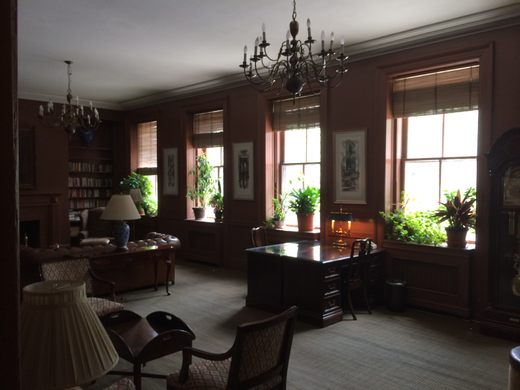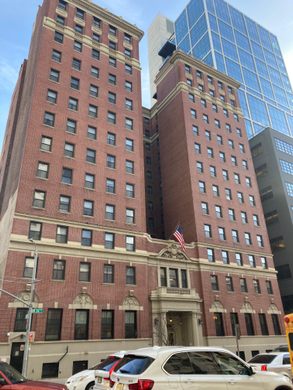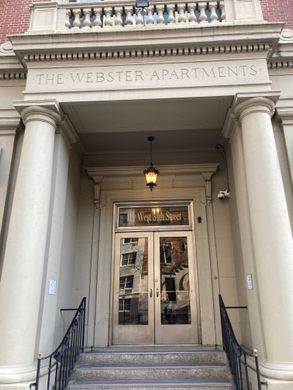The Webster Apartments
This New York holdover was built to provide housing for shopgirls and still does not allow men above the lobby.
The population of New York City boomed in the early 1900s, and with it, so did the number of young, single working women. One of the most popular places for these young women to find work during this time was in one of the city’s giant department stores, the largest of which (and the largest in the world for that matter) was owned by R.H. Macy and Company. Macy’s employed thousands of women as shopgirls who sold and demonstrated make-up, perfume and other products. With the sudden influx of seemingly vulnerable young women, social reformers soon began to worry over the safety of the shopgirls.
Two such reformers were Charles and Josiah Webster, cousins to Roland Macy, and majority shareholders in the store. When Charles died in 1916 he left almost all his fortune to the creation of the Webster Apartments. Located on 34th Street, between 9th and 10th Avenues, the Webster Apartments were laid out by Charles “For occupancy by unmarried working women regardless of their religious belief or nationality and wherein they find comfortable and attractive homes.”
Opening in 1923 the apartment offered cheap housing just a few blocks from the department store. Amenities included a roof deck, three meals a day, a library, an infirmary, and a laundry. Everything that could be thought of so that the young ladies wouldn’t be tempted to “stray.” In addition to the amenities provided by the apartments, male visitors were admitted to the Webster Apartments but were not allowed above the first floor. However, the girls could entertain their male friends in chaperoned “beau parlours” located on the ground floor.
In 1923 apartments were rented to the shop girls for $8 a week, including all meals and while the rent has definitely increased, not much else about the building has changed as the Webster Apartments are still going strong today, holding to the same ideals set out by Charles and Josiah. Today the apartments continue to be a residence for working women earning below a set income of $60,000 a year. And men are still not permitted above the first floor.



























Follow us on Twitter to get the latest on the world's hidden wonders.
Like us on Facebook to get the latest on the world's hidden wonders.
Follow us on Twitter Like us on Facebook